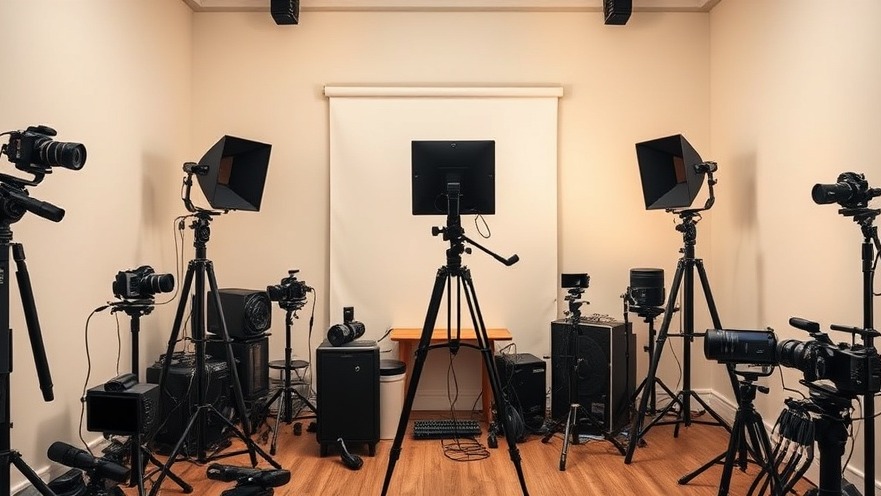
Rethinking Identity: Kelechi Amadi-Obi's Artistic Journey
Kelechi Amadi-Obi, a celebrated photographer and artist, has long been at the forefront of redefining how the African narrative is visually articulated. In a recent conversation, he reflected on his journey since taking the monumental decision to devote his life to the arts, a choice that stems from the deep-seated question: 'If there was no possibility of failure, what would you do for the rest of your life?' Amadi-Obi’s answer was unequivocal—art.
In 'Kelechi Amadi-Obi on Redefining Africa Through His Lens', the discussion dives into Amadi-Obi's personal artistic journey and its implications for contemporary African identity.
Childhood Influence and the Pursuit of Authenticity
From a young age, Amadi-Obi exhibited a keen interest in drawing, leading him to initially pursue a law degree. However, he emphasizes that staying true to one’s creative impulse is essential. Despite adult obligations and societal expectations, he advocates for maintaining a childlike curiosity. This sentiment resonates deeply in the African creative landscape, where emerging artists often grapple with identity amidst external pressures.
The Art of Self-Expression: Beyond Competition
A fundamental theme in Amadi-Obi's narrative revolves around the notion of competition versus individuality. He argues that comparisons detract from an artist’s unique voice, stating, 'There is no such thing as the best photographer; there’s only one Kelechi.' True artistry arises from innovation and self-discovery, which cannot be stifled by rivalry. His perspective aligns with a greater trend within the African creative community: a shift from competition to collaboration, fostering an environment of shared growth.
Cultural Context: Navigating Bias and Stereotypes
Amadi-Obi’s decision to express his individuality via his appearance, including his dreadlocks, further highlights the cultural dynamics at play. He notes that self-expression through fashion and personal style can redefine societal expectations, making a statement against conventional norms. 'Your appearance is a form of communication,' he asserts, reminding us that the narratives we project are shaped by cultural biases and personal experiences.
Empowering the Next Generation of Creatives
As the digital age opens new avenues for creativity, Amadi-Obi observes that the landscape has drastically transformed since his emergence into the art world. Young creatives now have unprecedented access to platforms for expression, but they also face the challenges of oversaturation and copyright issues stemming from the digital realm. He offers valuable advice: 'Have the courage to be yourself.' The liberation found in authenticity, as he suggests, is a catalyst for innovation.
Reflection on Progress: Opportunities and Obstacles
The evolution of the African artistic community is both inspiring and fraught with challenges. Amadi-Obi reminisces about the past when artists relied on physical mediums to showcase their work. Now, digital platforms reign but bring with them the nuanced dilemma of protecting one’s art from theft. He emphasizes the importance of adaptation; for example, while some works may be suitable for wide exposure, others require seclusion. 'You have to find ways to protect your work and show your good side,' he advises.
Conclusion: The Ongoing Narrative of Africa Through Art
Kelechi Amadi-Obi's artistic journey encapsulates a broader narrative that reflects the evolution of creativity within Africa. As contemporary storytellers of the continent, artists like him continue to push boundaries, challenge stereotypes, and reshape the artistic landscape. Their voices are crucial in telling the African story to the world, contributing to a future redefined not only by art but by authenticity, courage, and collaboration.
For those interested in the future of Africa's art scene, exploring further into these conversations can unveil endless possibilities for discovery and inspiration.
 Add Row
Add Row  Add
Add 


Write A Comment